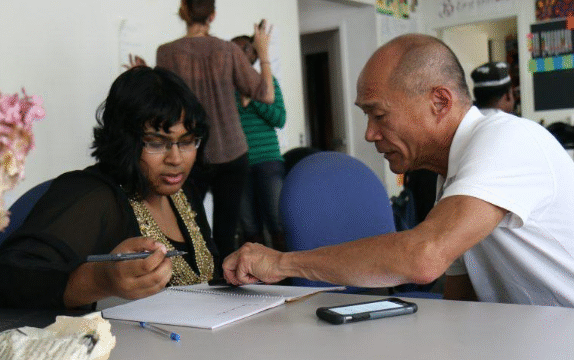In today’s fast-paced world, learning no longer takes place only in traditional
classrooms. The internet has opened up a whole new world of opportunities
for people to gain knowledge, develop skills, and even earn credentials that
can make a real difference in their careers. Online platforms that offer learning certificates have become especially popular because they combine flexibility with recognition. Whether you are a student looking to strengthen your resume, a professional hoping to advance, or someone simply curious about a new subject, certificate programs can be a practical way to achieve those goals.
One of the biggest reasons people turn to these platforms is the convenience they provide. Instead of having to enroll in long-term degree programs, learners can focus on specific skills or knowledge areas and complete them at their own pace. The certificates act as tangible proof that the learner has invested time and effort in developing those abilities. In many industries, that recognition can make a difference when applying for a new role, asking for a promotion, or switching career paths.
There are many online platforms that provide certificates, each with its own style and focus. Coursera is one of the most recognized names in this field. It partners with universities and leading organizations to deliver professional and academic courses that conclude with certificates. These certificates carry weight because they come from well-known institutions. Learners can explore subjects ranging from data science to public health, with courses designed to fit both beginners and experienced professionals.
Another major player is edX, which was founded by Harvard and MIT. Similar to Coursera, edX collaborates with top universities around the globe. Its platform offers professional certificates, micro-masters, and even pathways toward online degrees. The professional certificates in particular are appealing to people who want to showcase specialized knowledge without committing to a full degree program. Because the courses are designed by respected institutions, the certificates often hold strong value in academic and professional settings.
Udemy takes a different approach. Instead of focusing on partnerships with universities, it allows individual instructors to design and publish courses. This leads to an incredibly wide variety of topics, ranging from technical skills like programming and graphic design to lifestyle areas such as photography or cooking. Certificates from Udemy demonstrate that you have completed a course, though they may not carry the same academic weight as those from Coursera or edX. However, their affordability and diversity make them attractive to learners who want practical skills quickly.
LinkedIn Learning, formerly known as Lynda.com, has become a powerful platform for professionals who want certificates directly tied to their LinkedIn profiles. Because the certificates can be displayed on a LinkedIn page with just one click, they make it easy for employers and recruiters to see completed training. The platform focuses heavily on workplace skills such as project management, leadership, and digital tools. For people who want to strengthen their presence on LinkedIn while building skills, it is a convenient option.
Google has also stepped into the space with its Google Career Certificates. These programs are designed to prepare learners for jobs in fields like IT support, data analytics, and project management. The courses are often beginner-friendly and do not require a degree. Because Google is such a recognized name in the tech world, these certificates can be especially appealing to people looking to enter or grow within the technology sector. Some employers even view them as direct pathways to entry-level roles.
Skillshare offers yet another twist. While it may not be as focused on professional certificates as Coursera or Google, it has built a strong reputation in creative industries. Learners interested in graphic design, illustration, filmmaking, or writing often turn to Skillshare. The platform focuses more on building portfolios and practical work than formal certificates, but many of its classes provide completion badges or acknowledgment of participation. For creative professionals, those can be useful to demonstrate commitment to ongoing learning.
When considering these platforms, it is important to think about what type of recognition you want from a certificate. Some people are looking for academic credibility, which makes university-backed platforms like Coursera or edX ideal. Others prioritize practical skills and flexibility, which can make platforms like Udemy or Skillshare better suited. LinkedIn Learning works well for professionals who want visible proof of their development, while Google certificates are strong for those pursuing tech-related careers.
The cost of certificates also varies widely. Some platforms offer free courses with a paid option for certification, while others require payment upfront for both the course and the certificate. Many also provide financial aid or trial periods, making them accessible to more learners. When evaluating which program to pursue, it is wise to consider both the investment and the potential career benefits.
The popularity of online certificates also reflects a broader shift in how people view education. Employers are increasingly recognizing that skills matter just as much as, if not more than, formal degrees. A certificate in coding, digital marketing, or project management shows that you have learned a specific, job-ready skill. In fields that change quickly, such as technology, certificates are especially valuable because they demonstrate up-to-date knowledge.
At the same time, these platforms encourage lifelong learning. People no longer need to think of education as something that ends after high school or college. Instead, learning can continue throughout life in ways that are both enjoyable and rewarding. Someone might earn a certificate in public speaking to become more confident at work, while another might complete a photography course simply because they enjoy the art form.
Another benefit of online certificate platforms is that they often foster communities of learners. Discussion forums, peer reviews, and group projects create connections between people from around the world. This sense of community can be motivating and can even lead to professional networking opportunities. For example, completing a course alongside others in the same field can open doors to collaboration and mentorship.
Of course, not all certificates carry the same level of recognition. Employers may place more weight on certificates from certain institutions or in-demand industries. That is why it is helpful to research how well a particular certificate is regarded in your chosen career field. Reading reviews, exploring alumni success stories, and considering employer partnerships can all provide valuable insight before enrolling in a program.
Ultimately, online platforms offering certificates give learners a unique balance of flexibility, affordability, and recognition. They make it possible to adapt education to fit individual lifestyles and goals. For those hoping to advance professionally, they provide a way to highlight dedication and expertise. For those learning out of personal interest, they offer a chance to grow in meaningful ways.
As technology continues to shape education, the role of online certificate platforms will likely grow even more. They are not a replacement for traditional education, but rather a complement that provides accessible, targeted opportunities. By choosing the right platform and program, learners can build both confidence and credentials that carry real value in today’s world.






